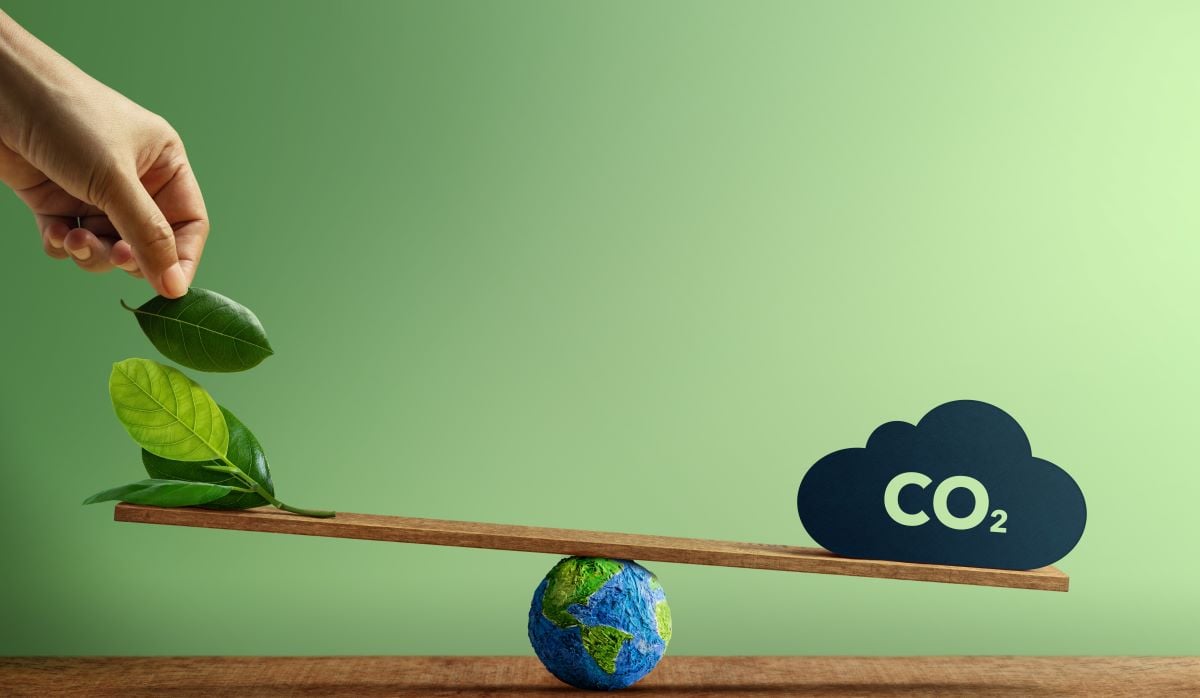Our global carbon footprint is growing fast, threatening the environment, food security, and people's health. As we produce more carbon dioxide (CO2) emissions, the risks to the environment increase each year. Therefore, it is vital that each of us contribute to reducing our environmental impact and becoming more sustainable by learning how to reduce carbon footprint.

What is a carbon footprint?
A carbon footprint is the total amount of CO2 emissions resulting from a person, product, or entity's activity. CO2 emissions come from various sources, such as transportation, manufacturing, heating, and electricity generation. The global average carbon footprint per person is 4.7 tonnes per year, with some countries reaching as much as 23 tonnes per year. The United States has an average of 14.7 tonnes per person. This wide range is due to lifestyle, consumption, and behaviour.
To reduce your carbon footprint means mitigating your CO2 emissions and making a positive impact on nature. Let's explore various ways to reduce your carbon footprint.
Read more: How do carbon footprints work?
How to reduce your carbon footprint

Here are several steps you can take to lower your carbon footprint:
1. Recycle your materials
Taking small steps like recycling is one of the best ways to reduce carbon emissions globally. Recycle your garbage and utilise the recycling services in your area. General household waste that can be recycled includes plastic, paper, metal, and glass.
2. Cut down on plastic
You can make a difference by avoiding single-use plastics like straws, plastic bottles, and plastic bags. Instead, use a reusable water bottle, straw, and cloth bag that you can carry with you. You will not only save money but also benefit the environment. You can also shop at places that don't use plastic packaging and where, for example, you need to bring your own containers to fill up on products. You can also participate in neighbourhood beach and park cleanups.
According to predictions of the United Nations, more plastic will be in the oceans than fish by 2050. It is therefore not sustainable for us to continue using plastic packaging and products at this rate.
Read more: The ultimate guide to plastic credits
With DGB Group's plastic credit programme, you can contribute to reducing global waste and offsetting your plastic footprint. Each plastic credit represents 1,000 kg of plastic waste removed and recycled that would otherwise have ended up in our oceans and ecosystems.
Offset your plastic footprint
3. Cut down on food waste
Food waste accounts for 6%–8% of global CO2 emissions.
To cut down on food waste, put food in a cool, dry cabinet or refrigerator to properly store it and keep it from spoiling. Try to pay attention to expiration dates. Purchase only what you require. Planning your meals for the week can also assist you in purchasing only what you need.
By making small changes to your food consumption and purchasing, you can reduce your food waste and carbon footprint.
4. Conserve water
Your carbon footprint increases as you use and heat more water. There are a few easy ways to reduce your carbon footprint and cut back on your water usage. You can start fixing leaks, switch to a water-saving showerhead, and turn off the water when shaving or brushing your teeth. These actions may seem small, but over time, they have a positive environmental impact and lower your water bill.
Read more: Water conservation: protecting nature's liquid gold
5. Reduce heating and cooling
Use heating and cooling devices sparingly, and don't set them on too hot or too cold. This can save energy costs and CO2 emissions. You can also use fans instead of air conditioners and use appliances like air conditioners on their energy-saving setting.
6. Travel efficiently
Your carbon impact will increase as you travel longer distances, as aeroplane takeoffs and landings produce most of the flight's carbon emissions. If you have to travel by air, select a nonstop flight to avoid layovers. Several airlines also offer options to offset your flight's CO2 emissions.
7. Plant trees
Trees and plants absorb CO2 from the atmosphere and produce oxygen. On top of this benefit, trees also absorb other pollutants, cleaning the air, and they regulate water flow and the climate. When you plant trees, you not only help to reduce your carbon footprint through the CO2 the plants sequestrate, but you also produce your own food, contributing to overall sustainability. In addition, trees offer vital habitats for species and contribute to a healthy ecosystem. With DGB's tree-planting subscription, you can help plant trees where they are needed most, contributing to creating vibrant ecosystems.
Start planting trees with DGB today
8. Invest in green projects
Nature-based projects are vital solutions to rising CO2 emissions and biodiversity loss. They restore vital habitats, boost ecosystems, and preserve biodiversity. By investing in DGB's green bonds with 8% return on investment that power our nature-based projects, you earn attractive returns while helping to restore nature and make a positive impact.
9. Improve home energy efficiency
Increasing your home's energy efficiency is another method to lessen your carbon footprint and, in the long run, save money. Make sure to choose more-efficient power solutions each time you need to make home improvements, such as installing eco-friendly house insulation or solar power.
You'll benefit financially by increasing the value of your house, cutting costs, and even getting a better deal on home insurance.
10. Start walking or biking instead of driving
To cut down on your CO2 emissions, include some of your frequent short-trip destinations on a walking or biking route. You can typically walk a mile in less than 20 minutes. This is a fantastic way to get some exercise into your hectic day whilst benefitting the environment.
If you live reasonably close to your place of employment, one of the best ways to reduce your carbon footprint is to commute by bicycle, take public transportation, or carpool. You can also work from home if you can or switch to a more fuel-efficient vehicle.
Read more: 5 Sustainable business practices to achieve net zero
How to reduce your carbon footprint with DGB Group
Measuring your carbon footprint is the first step towards your sustainability journey. Once you understand the amount of CO2 emissions you are responsible for, DGB can help you reduce and offset such emissions with our innovative solutions and top-quality carbon credits. Each carbon credit you buy represents 1 tonne of CO2 emissions removed from the atmosphere through our large-scale nature-restoration projects.
By reducing your carbon footprint, you contribute to a greener, healthier, more biodiverse future. You can start making your positive impact today.






